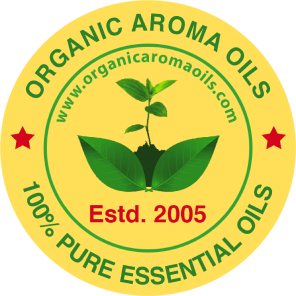Essential Oils Myths : Fiction or Facts?
Myth #1: Essential oils get better with time and last forever.
Depending on the exposure to light, air, and heat, essential oils generally last between one to six years.
Myth #2 :Essential oils were used by the people of Ancient Egypt and are also mentioned in the holy bible.
It is true that Aromatic oils are mentioned in the Bible and also used by the people of Ancient Egypt. The oils mentioned in the Bible were found in pyramids and were infused with herbal oils, mostly the olive oil.
Myth #3: When you apply an essential oil and your skin reacts with rashes or redness, it means your skin is detoxifying.
It is a dangerous myth. When you get redness or rashes on the skin after applying essential oil, it shows that the skin is negatively responding to the oil you are applying. In such cases, it is always recommended by the experts to immediately stop using the essential oil and consult with a skin specialist before applying it.
Myth #4: By making you like or dislike the smell, Your body tells you about its needs related to a particular essential oil.
There is no connection between fragrance and the need for an essential oil in the body. It can be possible that you may or may not enjoy the scent of an oil and that could be extremely helpful to you.
Myth #5: Essential oils can never freeze; if they do, they are no longer pure.
In cold temperatures, every liquid reacts the same way, including essential oils. If the essential oils you bought get frozen down, it does not mean that the oil is not pure. Leave it at room temperature to get it back to its normal state.
Myth #6: The smell and final outcome of the essential oil completely depends upon the order you follow during the manufacturing process.
The blending process of the essential oil does not affect the final product either for aroma or chemical profile.
Myth #7: If mentioned "Not for internal use" or "For external use only", does it mean that it is not that pure or of lower quality.
Such comments share no relation with the quality of whether the essential oil is good or bad.
Myth #8: The effects on the body are the same for essential oils or herbs from the same plant.
This does not happen every time as there are chances that safety concerns may vary from one another. For instance, despite the fact that cinnamon leaf and cinnamon bark are both parts of the same plant, the effects they have on the body are different since the former contains cinnamaldehyde and the latter, eugenol.
Myth #9: Essential oil of Frankincense carries boswellic acids.
There are no boswellic acid molecules in the frankincense essential oil as molecules are too large to come out from the distillation process.
Myth #10: Essential oils carry minerals, vitamins and hormones.
No, essential oils don't carry any such minerals, vitamins and hormones.
Myth #11: Essential oils are always safe to use as they are natural.
Essential oils are NATURAL and come from natural sources of water but this does not always make them safe to use.
Myth #12 : It’s always safe to put essential oils directly in a hot bath.
Essential oils can be used in the bath but only after emulsifying and for emulsifying, it is suggested to mix the essential oil with sesame oil or milk.
Myth #13 : Essential Oils Can Never Harm Us.
If not taken in the right quantity and in the proper way, essential oil can harm or cause skin irritation. It is crucial to follow the proper guidelines before use.
Myth #14 It's always safe to inhale Essential Oils.
Not all the essential oils are safe to inhale. There are some oils which can harm you badly if inhaled in access. So always make sure to follow proper guidelines or consult the expert before use.

